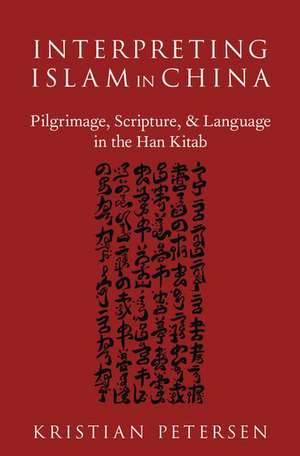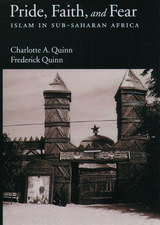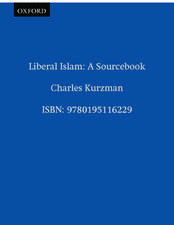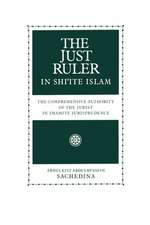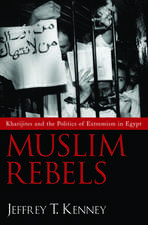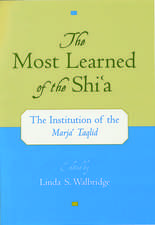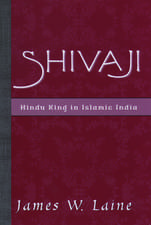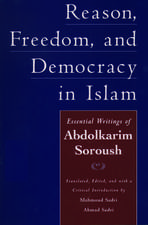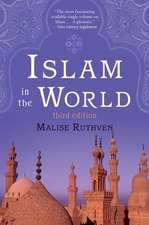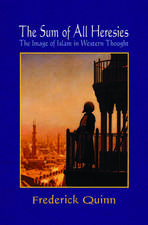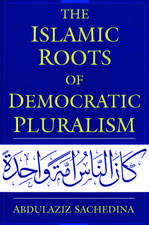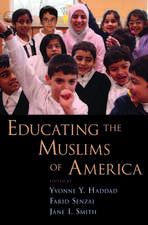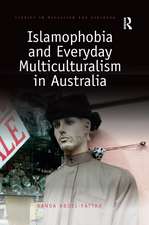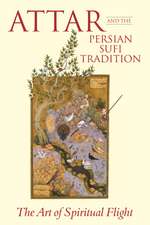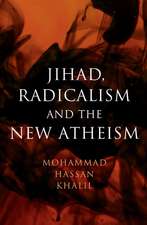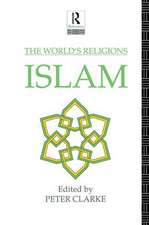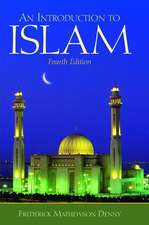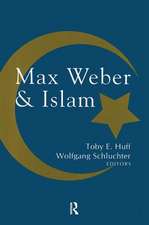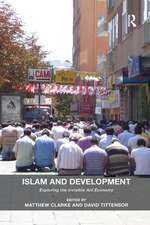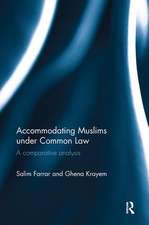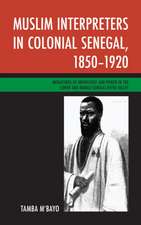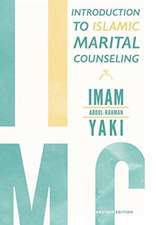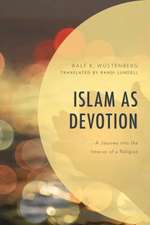Interpreting Islam in China: Pilgrimage, Scripture, and Language in the Han Kitab: AAR Academy Series
Autor Kristian Petersenen Limba Engleză Hardback – 26 oct 2017
Din seria AAR Academy Series
- 12%
 Preț: 190.08 lei
Preț: 190.08 lei - 27%
 Preț: 370.87 lei
Preț: 370.87 lei - 10%
 Preț: 436.99 lei
Preț: 436.99 lei - 14%
 Preț: 673.94 lei
Preț: 673.94 lei - 30%
 Preț: 492.00 lei
Preț: 492.00 lei - 10%
 Preț: 438.41 lei
Preț: 438.41 lei -
 Preț: 253.06 lei
Preț: 253.06 lei -
 Preț: 386.17 lei
Preț: 386.17 lei -
 Preț: 291.86 lei
Preț: 291.86 lei -
 Preț: 264.60 lei
Preț: 264.60 lei -
 Preț: 204.08 lei
Preț: 204.08 lei -
 Preț: 214.04 lei
Preț: 214.04 lei -
 Preț: 195.94 lei
Preț: 195.94 lei -
 Preț: 153.41 lei
Preț: 153.41 lei -
 Preț: 296.49 lei
Preț: 296.49 lei -
 Preț: 220.57 lei
Preț: 220.57 lei -
 Preț: 293.81 lei
Preț: 293.81 lei -
 Preț: 222.92 lei
Preț: 222.92 lei -
 Preț: 295.11 lei
Preț: 295.11 lei -
 Preț: 290.33 lei
Preț: 290.33 lei -
 Preț: 220.57 lei
Preț: 220.57 lei -
 Preț: 203.66 lei
Preț: 203.66 lei -
 Preț: 339.09 lei
Preț: 339.09 lei -
 Preț: 353.98 lei
Preț: 353.98 lei -
 Preț: 340.41 lei
Preț: 340.41 lei - 27%
 Preț: 445.21 lei
Preț: 445.21 lei - 30%
 Preț: 552.18 lei
Preț: 552.18 lei - 14%
 Preț: 252.21 lei
Preț: 252.21 lei - 19%
 Preț: 233.26 lei
Preț: 233.26 lei - 30%
 Preț: 596.81 lei
Preț: 596.81 lei - 30%
 Preț: 549.62 lei
Preț: 549.62 lei - 25%
 Preț: 566.78 lei
Preț: 566.78 lei - 30%
 Preț: 657.70 lei
Preț: 657.70 lei - 28%
 Preț: 424.52 lei
Preț: 424.52 lei - 31%
 Preț: 876.24 lei
Preț: 876.24 lei - 30%
 Preț: 579.27 lei
Preț: 579.27 lei - 30%
 Preț: 629.79 lei
Preț: 629.79 lei - 31%
 Preț: 861.56 lei
Preț: 861.56 lei - 30%
 Preț: 627.36 lei
Preț: 627.36 lei - 26%
 Preț: 700.31 lei
Preț: 700.31 lei - 28%
 Preț: 491.10 lei
Preț: 491.10 lei - 23%
 Preț: 199.22 lei
Preț: 199.22 lei - 28%
 Preț: 424.22 lei
Preț: 424.22 lei - 14%
 Preț: 191.75 lei
Preț: 191.75 lei - 26%
 Preț: 612.23 lei
Preț: 612.23 lei - 23%
 Preț: 339.51 lei
Preț: 339.51 lei
Preț: 687.48 lei
Preț vechi: 944.17 lei
-27% Nou
Puncte Express: 1031
Preț estimativ în valută:
131.56€ • 142.86$ • 110.51£
131.56€ • 142.86$ • 110.51£
Carte tipărită la comandă
Livrare economică 11-17 aprilie
Preluare comenzi: 021 569.72.76
Specificații
ISBN-13: 9780190634346
ISBN-10: 0190634340
Pagini: 304
Dimensiuni: 236 x 155 x 31 mm
Greutate: 0.6 kg
Editura: Oxford University Press
Colecția OUP USA
Seria AAR Academy Series
Locul publicării:New York, United States
ISBN-10: 0190634340
Pagini: 304
Dimensiuni: 236 x 155 x 31 mm
Greutate: 0.6 kg
Editura: Oxford University Press
Colecția OUP USA
Seria AAR Academy Series
Locul publicării:New York, United States
Recenzii
In his book Interpreting Islam in China: Pilgrimage, Scripture, and Language in the Han Kitab, Kristian Petersen freshly and engagingly analyzes the complex theories and narratives Muslims have used to explore their place within the Chinese empire and among Chinese traditions
Kristian Petersen's new book, Interpreting Islam in China, is a masterful study of Sinophone Muslims in late imperial China. It synthesizes much recent work on Sino-Muslim intellectual networks of the Ming-Qing periods, while contributing new research, particularly on Ma Dexin (1794-1874), which will be of interest to historians and religious scholars alike. It will no doubt join the groundbreaking volumes of Zvi Ben-Dor, Jonathan Lipman, Ma Tong, Wang Jianping, and many others in bringing to light voices from an important historical corner of the Islamic world.
The book is written in clear and accessible prose; there is no doubt that it can be used in classes for advanced undergraduate and postgraduate students. To anyone interested in an alternative -- and rich -- Islamic tradition lodged in the Chinese-speaking world, this book would prove an invaluable reference; and those who do have a genuine commitment to understanding China cultural and religious heterogeneity that is under increasing attack from both Han nationalists and a repressive state apparatus will be grateful for Petersen's contribution.
We are still far from being able to write a history of Qur'an translation or, more broadly, non-Arabic Muslim engagement with the Qur'an. Books such as Petersen's are important steps on the way to this goal. His thoughtful analysis, his insightful conclusions, and his broad reflections on the authors' contexts, motives, and audiences provide ample potential for comparative readings.
Undoubtedly, Petersen contributes to the growing interest in the studies of the Han Kitab tradition with his new approach of historical hermeneutics, which enlarges and deepens our understanding of both the individual Muslim authors and the Han Kitab as a discursive tradition
This excellent and eminently well-researched book systematically elucidates the contextual development of the fascinating Sino-Islamic philosophical tradition known as the han Kitab ... Petersen seeks to not only facilitate a better understanding of this tradition, but also subvert conventional essentialized notions of Islam.
In his monumental new book, Interpreting Islam in China: Pilgrimage, Language, and Scripture in the Han Kitab, Kristian Petersen...takes his readers on an unforgettable journey through the layers and complexities of Sino-Muslim intellectual and social history. On the way readers meet the major scholars and texts that played a formative role in the development of the Han Kitab tradition ... In addition to constituting a field turning contribution to the study of Islam in China, this book is also among the most dazzling interventions in translation studies. All students and scholars of Islam, Religion, Asian Studies, and Translation Studies will have much to benefit from this brilliant study. It will also make an excellent text in both undergraduate and graduate courses on Muslim intellectual history, Asian Religions, and theories and methods in Religion Studies.
Kristian Petersen contributes substantially to the intellectual and religious history of Islam in China by analyzing the Han Kitab through the lens of Religious Studies. Focused on themes of pilgrimage, scriptural translation, and the significance of the Arabic language, he skillfully attends to both the ideas and the contexts of three central Sino-Muslim thinkers. All three tried to reconnect their communities to what they perceived as a lost religious heritage, originally written in Arabic and Persian but lived and comprehended in Chinese. Petersen reconstructs an intellectual middle ground, a series of 'dialogic environments,' in which Islam made authentic and authoritative sense within Chinese culture at particular historical moments. Theoretically broad and contextually specific, he demonstrates that Chinese and Islamic civilizations have conversed, not simply clashed.
Through close readings, by turns contextual and deconstructive, of the writings of three leading Sino-Muslim scholars, Kristian Petersen unravels the translations and transfers that molded an Islam both in and for China. His case studies of the changing status of pilgrimage, scripture and sacred language among Han Kitab authors at once broadens the scope of Islamic Studies and deepens our understanding of world history by pursuing the intellectual traffic of inter-Asian interactions.
With painstaking erudition and great care, Kristian Petersen uncovers and reconstructs many hitherto unknown bridges between Chinese Islam and the wider Islamic world. Interpreting Islam in China forges new ways of understanding and appreciating the Han Kitab, Chinese Islam's enormous corpus, and introduces for the first time its last great author, Ma Dexin. A beautiful study of one of the remote corners of the Islamic world of thinking.
Kristian Petersen's new book, Interpreting Islam in China, is a masterful study of Sinophone Muslims in late imperial China. It synthesizes much recent work on Sino-Muslim intellectual networks of the Ming-Qing periods, while contributing new research, particularly on Ma Dexin (1794-1874), which will be of interest to historians and religious scholars alike. It will no doubt join the groundbreaking volumes of Zvi Ben-Dor, Jonathan Lipman, Ma Tong, Wang Jianping, and many others in bringing to light voices from an important historical corner of the Islamic world.
The book is written in clear and accessible prose; there is no doubt that it can be used in classes for advanced undergraduate and postgraduate students. To anyone interested in an alternative -- and rich -- Islamic tradition lodged in the Chinese-speaking world, this book would prove an invaluable reference; and those who do have a genuine commitment to understanding China cultural and religious heterogeneity that is under increasing attack from both Han nationalists and a repressive state apparatus will be grateful for Petersen's contribution.
We are still far from being able to write a history of Qur'an translation or, more broadly, non-Arabic Muslim engagement with the Qur'an. Books such as Petersen's are important steps on the way to this goal. His thoughtful analysis, his insightful conclusions, and his broad reflections on the authors' contexts, motives, and audiences provide ample potential for comparative readings.
Undoubtedly, Petersen contributes to the growing interest in the studies of the Han Kitab tradition with his new approach of historical hermeneutics, which enlarges and deepens our understanding of both the individual Muslim authors and the Han Kitab as a discursive tradition
This excellent and eminently well-researched book systematically elucidates the contextual development of the fascinating Sino-Islamic philosophical tradition known as the han Kitab ... Petersen seeks to not only facilitate a better understanding of this tradition, but also subvert conventional essentialized notions of Islam.
In his monumental new book, Interpreting Islam in China: Pilgrimage, Language, and Scripture in the Han Kitab, Kristian Petersen...takes his readers on an unforgettable journey through the layers and complexities of Sino-Muslim intellectual and social history. On the way readers meet the major scholars and texts that played a formative role in the development of the Han Kitab tradition ... In addition to constituting a field turning contribution to the study of Islam in China, this book is also among the most dazzling interventions in translation studies. All students and scholars of Islam, Religion, Asian Studies, and Translation Studies will have much to benefit from this brilliant study. It will also make an excellent text in both undergraduate and graduate courses on Muslim intellectual history, Asian Religions, and theories and methods in Religion Studies.
Kristian Petersen contributes substantially to the intellectual and religious history of Islam in China by analyzing the Han Kitab through the lens of Religious Studies. Focused on themes of pilgrimage, scriptural translation, and the significance of the Arabic language, he skillfully attends to both the ideas and the contexts of three central Sino-Muslim thinkers. All three tried to reconnect their communities to what they perceived as a lost religious heritage, originally written in Arabic and Persian but lived and comprehended in Chinese. Petersen reconstructs an intellectual middle ground, a series of 'dialogic environments,' in which Islam made authentic and authoritative sense within Chinese culture at particular historical moments. Theoretically broad and contextually specific, he demonstrates that Chinese and Islamic civilizations have conversed, not simply clashed.
Through close readings, by turns contextual and deconstructive, of the writings of three leading Sino-Muslim scholars, Kristian Petersen unravels the translations and transfers that molded an Islam both in and for China. His case studies of the changing status of pilgrimage, scripture and sacred language among Han Kitab authors at once broadens the scope of Islamic Studies and deepens our understanding of world history by pursuing the intellectual traffic of inter-Asian interactions.
With painstaking erudition and great care, Kristian Petersen uncovers and reconstructs many hitherto unknown bridges between Chinese Islam and the wider Islamic world. Interpreting Islam in China forges new ways of understanding and appreciating the Han Kitab, Chinese Islam's enormous corpus, and introduces for the first time its last great author, Ma Dexin. A beautiful study of one of the remote corners of the Islamic world of thinking.
Notă biografică
Kristian Petersen is Assistant Professor of Religious Studies and co-director of Islamic Studies at the University of Nebraska Omaha. His research engages theory and methodology in the study of religion, Islamic Studies, Chinese religions, and Media Studies.
